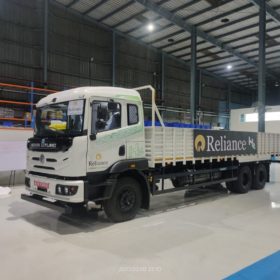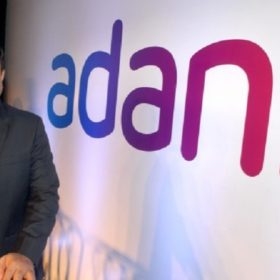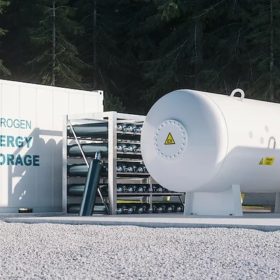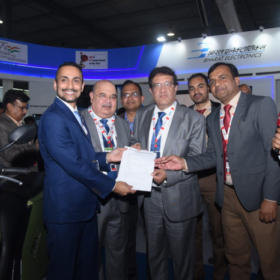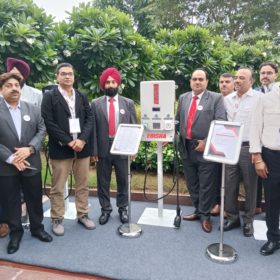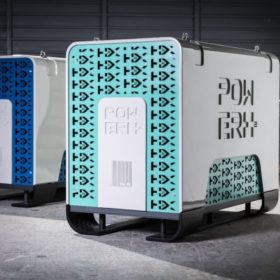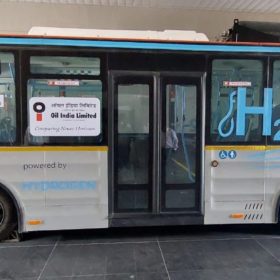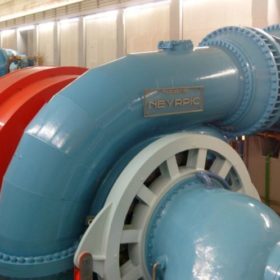Reliance Industries unveils India’s first hydrogen combustion engine technology for heavy-duty trucks
Reliance Industries Ltd developed the hydrogen internal combustion engine technology solution for heavy-duty trucks together with Ashok Leyland and other technical partners. It plans the technology’s first commercial deployment at scale initially across its captive fleet following extensive test and validation.
Adani to launch hydrogen-powered mining truck pilot
The hydrogen-powered truck for mining logistics and transportation will have the vehicle platform developed by Ashok Leyland and fuel cell technology from Canada’s Ballard Power Systems.
Erisha partners Germany’s Greenbox for green hydrogen business
Erisha E Mobility has formed a joint venture with Greenbox to manufacture a range of green hydrogen solutions by leveraging technologies developed by Greenbox.
Triton signs EV battery packs, hydrogen fuel cells deal with BEL
The India arm of USA-headquartered Triton Electric Vehicle has issued an INR 8,060 crore (around $971 million) Letter of Intent to state-owned Bharat Electronics Ltd (BEL) for the purchase of EV battery packs. It will also transfer its technology to BEL for production of hydrogen fuel cells in India.
Erisha E Mobility launches EVs and EV charging stations, eyes battery manufacturing
The electric vehicle (EV) manufacturer has launched electric cargo and passenger vehicles in the L5 category, along with EV charging stations. It also plans gigawatt-scale production of EV batteries soon.
Australian startup releases new hydrogen generators
H2X Global has released the first of its hydrogen-powered generators in the Australian market.
Reliance Industries presents scaled-up solar, battery ambitions
Reliance Industries says that production will begin at its 10 GW factory for solar cells and modules by 2024. It plans to double the facility’s capacity to 20 GW by 2026 and is aiming for 50 GWh of annual cell-to-pack battery capacity by 2027.
State-run oil majors spearheading R&D on hydrogen
India’s national hydrogen mission includes the development of hydrogen as a fuel for transportation. Toward that objective, state-run oil and gas companies are engaged in a number of projects, including the blending of hydrogen with compressed natural gas for use as a transportation fuel, and the use of green hydrogen for fuel-cell-based mobility.
NHPC and DVC to jointly develop pumped hydro storage projects
State-run hydropower producer NHPC Ltd is also entering green hydrogen production. To begin with, it will set up pilot green hydrogen projects in Leh and Kargil districts of the Indian union territory of Ladakh.
Oil India completes beta demo for hydrogen-powered bus
Ohm Cleantech, a startup incubated by Oil India, has developed a 9-meter hydrogen fuel cell bus that can cover 450 km on a single refill. The bus will start appearing on roads in Assam’s Kaziranga Nation Park in the months ahead.
